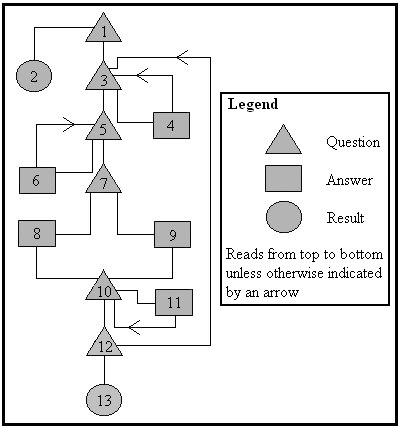
Imagine that you're the government of a middle tier but prosperous country. It happens. In line with generally accepted principles of good government, you have defunded groups that disagree with your policies and put in place compliant heads of organizations you couldn't outright close down. As your opposition dwindles to a precious few, one stands out as especially dangerous to the democratic process (aka: your policy agenda): a public broadcaster.
Public broadcasters often come with a long history which gives political consumers (formerly: citizens) the mistaken impression that they were an important part of building the nation. The ensuing warm, fuzzy feelings on the part of said consumers makes destroying public broadcasters tricky, but, as the following algorithm illustrates, not impossible:

| 1. | Does you base agree that the public broadcaster is a threat to democracy that should be eradicated by any means possible? | |
| NO | 2. | Step back and watch as the other major party does the eradication. |
| YES | 3. | Have vocal proponents of the public broadcasting system been sufficiently marginalized to be ineffective opponents of its eradication? |
| NO | 4. | Ask your friends in friendly think tanks and media to marginalize vocal proponents of the public broadcasting system. |
| YES | 5. | Does the public support the public broadcaster? |
| YES | 6. | You and your friends in various places need to make a case against the public broadcaster.* |
| NO | 7. | Is the public hostile to the public broadcaster, or merely indifferent to it? |
| HOSTILE | 8. | Cut up to 17 per cent of the government funding for the public broadcaster.** |
| INDIFFERENT | 9. | Freeze government funding for the public broadcaster.*** |
| 10. | Is the President of the public broadcaster defending against your moves? | |
| YES | 11. | Replace the President of the public broadcaster with somebody who is sympathetic to what you are trying to accomplish.**** |
| NO | 12. | Is the broadcaster still able to carry out the core functions of its mandate? |
| YES | GO TO 3 | |
| NO | 13. | Ignore it as it slides into irrelevance. |
NOTES
* For example: you can argue that, in times of fiscal restraint (and, when you are the government, the times are always ones of fiscal restraint), a fully funded public broadcaster is a luxury the poor taxpayers of your country cannot afford; think tanks could release papers arguing that the public broadcaster is no longer necessary because private broadcasters now fulfill all of its key roles, and; private broadcasters can moan about unfair competition from a publicly subsidized broadcaster. Since all of these arguments are rather easily refutable, you will have to ensure that they are repeated endlessly in the media.
** You might wonder why you shouldn't defund it entirely. A public broadcaster that still exists is easily ignored, but a public broadcaster that has been completely eradicated leaves a hole that many people might think should actually be filled. To be sure, your base would cheer if you eradicated the public broadcaster immediately. However, citizumers (citizen consumers) who had only moments before been completely indifferent to the public broadcaster might get the mistaken impression that you are hostile to it, and you don't want anybody incorrectly coming to the conclusion that you are a bully. Besides, you will get much more pleasure in the long run watching the public broadcaster slowly twist in the wind.
*** You may wonder what good will come of freezing the funding for a public broadcaster. Actually, if there is appreciable inflation in your country, it will slowly erode the institution's spending power. Freezing funding is not as quick as cutting it directly, or as satisfying (although it does prolong the whole twisting in the wind thing), but it does have a certain Machiavellian charm.
**** Not, mind you, a sycophant. It's the whole bully thing, again. Ideally, you want somebody who talks a good game of rising to the challenge of a new fiscal reality without actually mentioning who is responsible for successive new fiscal realities.
No, wait – that could be confusing. How about:
Okay. That's better.
As with previous examples, the algorithm for killing a public broadcaster makes no claims about the morality of its prescription. Honestly, if you want to debate right and wrong, you should become a rabbi, not go into politics.